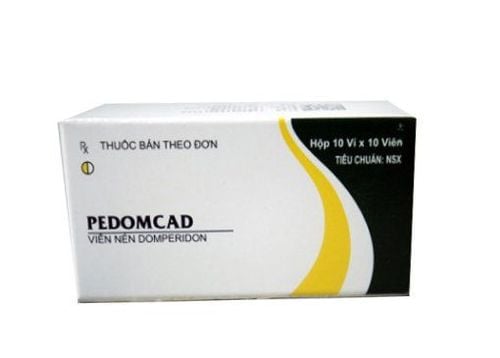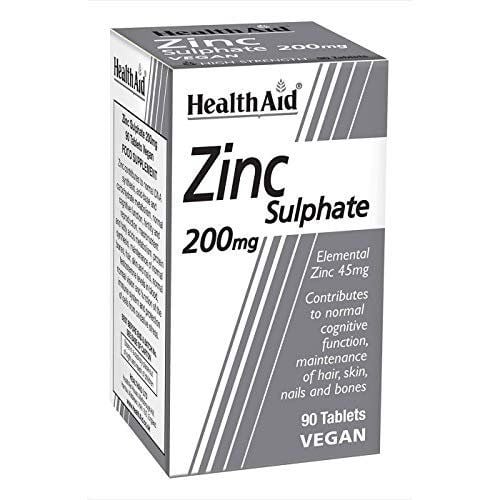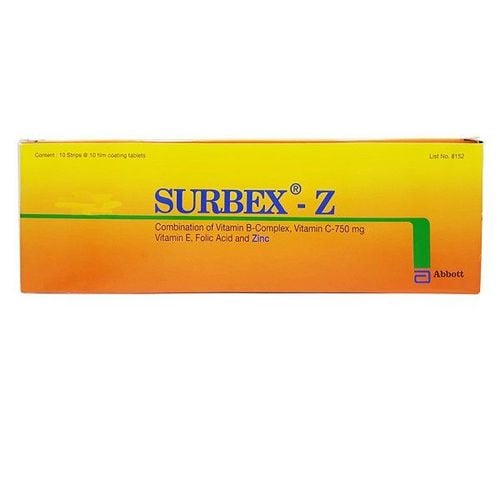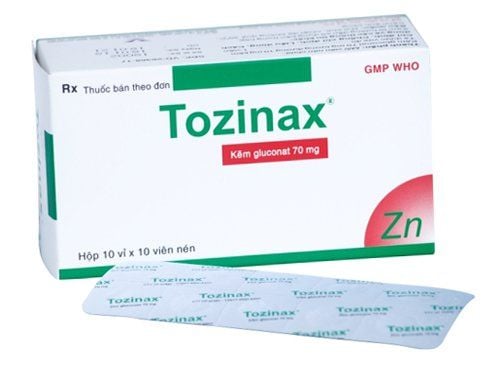This is an automatically translated article.
The article was professionally consulted by Resident Doctor Ho Thi Hong Tho - Neonatologist - Pediatrics - Neonatology Department, Vinmec Phu Quoc International General HospitalIn recent years, the percentage of children with zinc deficiency is showing clear signs of increasing. Zinc deficiency can greatly affect the immune system and other important body functions. Therefore, zinc supplementation for children is extremely necessary.
1. Zinc deficiency in children
Zinc is a mineral found mainly in foods like bread, red meat, seafood, whole grains, and dried beans. In addition, it is also present in small amounts in breast milk. Zinc is important for the normal growth and development of the brain and reproductive organs, and plays an essential role in the functioning of the immune system and other processes in the body. A number of recent studies have shown that zinc deficiency is strongly associated with decreased growth, increased infections, colds, memory impairment, inability to concentrate and learn. Zinc deficiency in children is an alarming problem in developing countries.It is estimated that about 30% of the world's population suffers from zinc deficiency, including a large number of children under the age of 5 who are deficient in this important micronutrient. In Vietnam, the percentage of children with zinc deficiency is assessed based on low serum levels, specifically below 10.7 μmol/L, ranging from 25-40% depending on the region and age group.
With the above alarming zinc deficiency, zinc supplementation for children is considered an urgent job, especially in children at high risk of zinc deficiency. However, before supplementing with zinc for children, parents need to consult a doctor carefully about the dosage as well as how to use products that provide zinc.

Bổ sung kẽm cho trẻ là điều rất cần thiết
2. Should zinc supplements be given to children?
In fact, the child's body always needs a certain amount of zinc to be able to grow and develop comprehensively. Overall, zinc supplementation for children can produce huge positive effects on both weight and height. Moreover, it also contributes to a significant improvement in growth retardation or low birth weight in children.According to health care professionals, zinc is a catalyst that plays a core role in RNA - polymerase, which is important for DNA replication and protein synthesis in the body. For the above reason, zinc can help promote cell division and growth. If zinc deficiency, the cells in the body will work harder and seriously affect the development of the body, leading to malnutrition and stunting. In addition, zinc is also involved in the regulation of the functions of growth hormone (GH).
In addition, vitamin zinc supplementation for children also helps maintain the function of olfactory and taste cells. When the baby's body is deficient in a certain amount of zinc, it will affect the taste cells and cause anorexia. This also increases the risk of children being malnourished, severely hindering their development and growth.
According to experts, zinc for the immune system of children has an indispensable role. It helps the immune system work more efficiently, prevents the risk of dangerous diseases, and enhances the speed of wound healing. Zinc deficiency impairs the function of most immune cells in the body, especially B, T cells and macrophages.
Zinc deficiency can compromise the functions of the immune system, so the risk of infections in children is very high. Ideally, you should consult your doctor about adequate and appropriate zinc supplementation for children to help strengthen resistance, fight disease, support development and reduce the risk of malnutrition. stunting in children.
3. What is the child's need for zinc?
Below are the zinc requirements for each certain age, including:Children under 1 year: Need to supplement about 5 mg/day. Children from 1 to 10 years old: Need to supplement about 10 mg/day. Adolescents and adults (for men): About 15 mg/day. Adolescents and adults (for women): About 12 mg/day. You can completely get zinc for your child through a balanced diet with a variety of zinc-rich foods such as: red meat, shellfish, nuts, beans, potatoes, and mushrooms. .
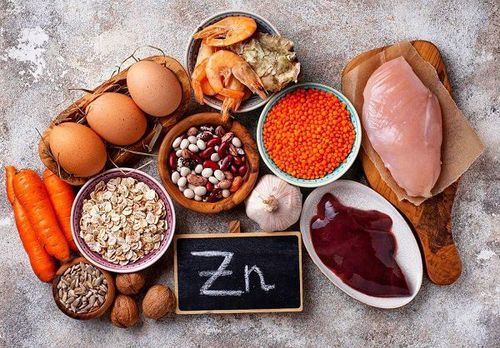
Bạn có thể bổ sung kẽm cho trẻ thông qua chế độ ăn uống
4. Warning signs and symptoms of zinc deficiency in children
Typical signs that a child's body is deficient in zinc include loss of appetite, loss of appetite, taste disturbances, persistent diarrhea, hair loss, growth retardation, skin and eye damage, and organ damage. reproductive retardation.In addition, zinc deficiency also causes children to lose weight, slow wound healing, anemia and poor mental clarity. When tested, the child's serum zinc concentration was below 70 mcg/dl, and there were signs of decreased alcohol dehydrogenase in the retina, decreased collagen synthesis, decreased RNA polymerase activity level and impaired function of T lymphocytes.
5. How does zinc deficiency affect young minds?
Not only does it have a physical impact, zinc deficiency can also negatively affect a child's mental health. Not getting enough zinc in children can cause mental problems such as irritability or mood swings. When the child's body is deficient in zinc, it will interfere with the transport of calcium to the brain, which is considered an important substance in stabilizing nerves.Besides, children who do not get enough zinc are also very susceptible to autism. In addition, the risk of acute diarrhea, malaria or respiratory infections in children due to zinc deficiency is also increased.
Zinc supplementation for malnourished children with stunting can help bring about a remarkable recovery in both the growth rate of height and weight of children. This is because zinc has the ability to increase levels of the hormone IGF-1 (growth hormone in the body).
According to a recent study, zinc supplementation for babies with low birth weight leads to an outstanding growth in height and weight in the first 6 months of life. On the other hand, when providing enough zinc for children, it reduces the number of cases of diarrhea by 18%.
6. How to prevent zinc deficiency in children?
To prevent zinc deficiency in children, you can supplement zinc for children through foods such as soybeans, fish, egg yolks, milk, pig liver, oysters, oysters, shrimps, nuts. oil or bean sprouts. In addition, breast milk also contains a certain amount of zinc, especially in the first month ranging from 2 to 3 mg of zinc/liter of breast milk. Therefore, mothers should try to exclusively breastfeed their babies for the first 6 months after birth and continue until the baby is 2 years old.Besides, you can also supplement zinc for children through products such as nutritional powder, formula milk and zinc-fortified cakes. In addition, zinc for children is also produced in the form of zinc nuggets or zinc syrup, which can be used for children with diarrhea or respiratory infections.
Parents also need to pay attention to the comprehensive development of the child, the baby should be supplemented with lysine, essential micro-minerals and vitamins such as zinc, chromium, selenium, B vitamins to help fully meet the nutritional needs. , support digestion, enhance absorption of nutrients, help improve anorexia, help children eat well.
For more nutritional knowledge and child care for each age, parents should regularly visit the website vimec.com and make an appointment with the leading doctors, pediatric and nutrition experts of the National General Hospital. Vinmec when needing advice on children's health.
Reference source: webmd.com





